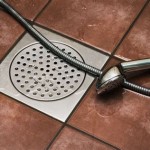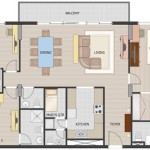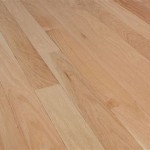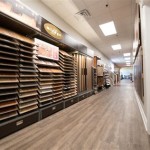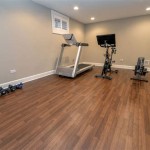Advantages of Engineered Hardwood Flooring
Engineered hardwood flooring has become a popular choice for homeowners due to its unique construction and the numerous advantages it offers over solid hardwood and other flooring options. This article explores the key benefits of choosing engineered hardwood for your home.
Stability and Resistance to Moisture
One of the most significant advantages of engineered hardwood is its enhanced stability in environments with fluctuating humidity levels. Unlike solid hardwood, which can expand and contract with changes in moisture, engineered hardwood is less susceptible to warping, cupping, and buckling. This stability stems from its layered construction. Engineered hardwood comprises a top layer of real hardwood veneer bonded to multiple layers of plywood or high-density fiberboard (HDF). These core layers are arranged in a cross-ply configuration, which counteracts the natural expansion and contraction of wood, providing dimensional stability.
Versatility in Installation
Engineered hardwood offers greater versatility in installation compared to solid hardwood. It can be installed in various ways, including gluing, nailing, stapling, or floating. The floating installation method, in particular, is a significant advantage as it doesn't require direct attachment to the subfloor. Planks are clicked together and laid over an underlayment, making installation faster and easier, even for DIY enthusiasts. This method is also ideal for installations over concrete subfloors or radiant heating systems, where nailing or stapling is not feasible.
Cost-Effectiveness
While the initial cost of engineered hardwood can be comparable to some solid hardwood options, the overall cost-effectiveness can be greater. The faster installation process can reduce labor costs. Furthermore, the stability of engineered hardwood minimizes the risk of future repairs or replacements due to moisture damage, potentially saving significant expenses in the long run.
Authentic Hardwood Appearance
Engineered hardwood flooring offers the beauty and warmth of real hardwood. The top layer consists of a genuine hardwood veneer, available in various species, colors, and finishes. This allows homeowners to achieve the desired aesthetic of hardwood flooring without the limitations and drawbacks of solid hardwood. The veneer layer can be sanded and refinished, although the number of times this is possible depends on the veneer thickness.
Suitability for Various Environments
Due to its enhanced stability, engineered hardwood is suitable for installation in a wider range of environments compared to solid hardwood. It can be installed in basements, kitchens, and bathrooms, where moisture levels can fluctuate. However, it's essential to choose engineered hardwood products specifically designed for high-moisture areas and to follow the manufacturer's installation guidelines carefully.
Eco-Friendliness
Some engineered hardwood products offer environmental benefits. By utilizing a thinner veneer of hardwood, they consume less of this valuable natural resource compared to solid hardwood. Additionally, manufacturers may source wood from sustainably managed forests or use recycled wood fibers in the core layers, further enhancing their eco-friendliness. When considering this aspect, it's important to look for certifications such as FSC (Forest Stewardship Council) to ensure responsible sourcing.
Ease of Maintenance
Engineered hardwood flooring is relatively easy to maintain. Regular sweeping or vacuuming removes dust and debris. Occasional damp mopping with a wood floor cleaner helps to maintain its shine. Avoid using excessive water, as this can damage the wood. Protective mats at entrances and under furniture can help prevent scratches and dents.

Hardwood Vs Engineered Wood Flooring Which Is Better Bessemeter

The Pros And Cons Of Engineered Timber Flooring

Solid Vs Engineered Hardwood Which Is Better

Top 5 Engineered Wood Flooring Advantages And Disadvantages

Why Engineered Hardwood Flooring Is A Good Option Aa Floors

Engineered Wood Flooring Homeowner Pros Cons

What Is Engineered Wood Flooring Made Of And Beyond Blog

Engineered Hardwood Flooring Pros And Cons Essential Facts To Learn

Engineered Wood Flooring Archives

Engineered Hard Wood Flooring Advantages And Disadvantages



